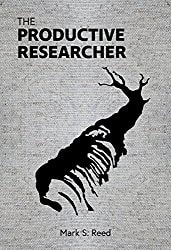|
'Getting everything done' is a common issue in my life - trying to balance playing, teaching, all the admin that goes with those, doing research, all the usual things that you have to get done in life and actually 'having a life' isn't always easy. I see it in my students too. It's proving to be a frequent theme in my research (and anecdotally) with adult learners - how do you find time to practise an instrument, learn music theory, read about the history of your pieces etc, whilst also doing a full-time job, bringing up children, and going to the gym regularly (or whatever it is that fills your weeks)? I increasingly see it with younger students too - how do you fit in learning music, all that homework, competing with your sports team and all those birthday parties, and still have some time to hang out and do nothing as well? When you're younger, you probably don't think in terms of 'productivity'. As an adult these days, the word is everywhere. We're meant to be getting loads done (whilst simultaneously taking plenty of time out for self-care). There's a massive industry around teaching people ways of doing more in less time, books packed full of methods to help you be more productive - if only we could find time to read them all! I was pleased to be chosen as part of the pre-launch reading group for Prof Mark Reed's new book The Productive Researcher - it's great to be supporting someone who's self-publishing their work, and I was hoping to find ways to make the most of my time. I wasn't sure at all what to expect, and worried slightly that it would be full of what felt like unachievable methods for 'doing more', just tailored towards academics. What I actually got was not at all your usual ‘how to do more’ book. Mark writes in an open, friendly way, sharing his own experiences of discovering how to be productive, but also happy in your work. There’s clear academic research behind it – in looking at other people’s theories and approaches to productivity – but it reads like the words of a supportive, gently challenging mentor. You can read this book quickly and pick up useful ideas from it, but I think to get the best from it you need to spend some time and mental energy to work through the questions and exercises, and commit to trying to use the principles. It’s not (nor does it promise to be) a quick fix, but it really gets to grips with what lies behind our struggles with ‘being productive’. The first part of the book proposes that to be productive in our work, we need to know why we’re doing the work, and asks us to pin down our motivations – I particularly liked the idea of having back-up motivations for the times when our main ones falter. There’s a re-framing of SMART goals as “Stretching, Motivational, Authentic, Regardful and Tailored” which I felt was much more motivating than the original concept. The second part describes ways of putting these motivations and goals into action. There’s a focus on prioritising and using your time well – that the way to feel/ be more productive is to spend less time on the things that don’t contribute to your overall goals. I loved the idea of firing up your day with enjoyable work first, rather than saving the bits you like as a reward for getting through the less fun stuff. There are practical tips on managing the time you spend in meetings, on social media, and dealing with the never-ending stream of emails! I can imagine that some of these would take a fair amount of willpower to implement in the pressured atmosphere that academics are working under, and there are bigger issues at play around what is expected of researchers, but some of these steps would definitely help gain back some sense of control to your working life. Although it's aimed at researchers, meaning that some of the scenarios are academia-specific, e.g. submitting papers to journals, examining a PhD thesis, there's a lot in this book for anyone who wants to feel like they're making the most of their days. Being really clear about your motivations and priorities, and learning not just how to say 'no' but how to decide what to say 'no' to, are lessons that anyone could find useful. Yes, there are days when whatever procrastination activity you like to indulge in seem far more appealing than practising your scales or going for a run in the rain, but if you're clear about your overall motivation and what's important to you (you want to be able to join a band and sight-read new pieces at rehearsals, or you want to complete a half-marathon) you can keep revisiting that to keep you going and enjoying what you do. Bloggy disclaimer things: I received a free copy of the ebook version of The Productive Researcher and was asked to write an honest Amazon review (which I did - it's basically a reduced version of this blog post). The links above are my Amazon affiliate links which mean that if you buy the book through those I will receive a small amount of commission.
0 Comments
Your comment will be posted after it is approved.
Leave a Reply. |
Keep in touch
I have an email newsletter where I share my latest blog posts, news from the flute and wider musical world, my current projects, and things I've found that I think are interesting and useful and would love to share with you. Expect lots about music and education, plus the occasional dip into research, language, freelance life, gardening and other nice things. Sign up below! Archives
July 2019
Categories
All
|

 RSS Feed
RSS Feed
